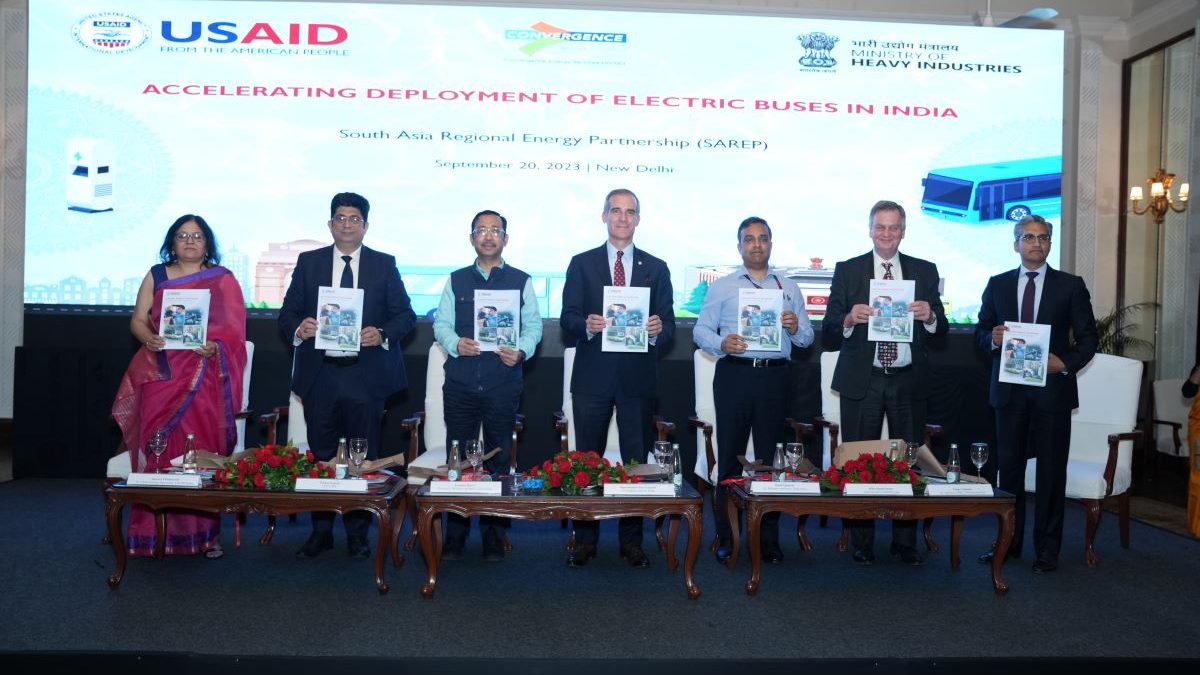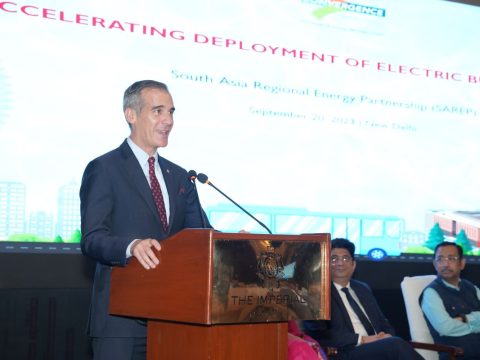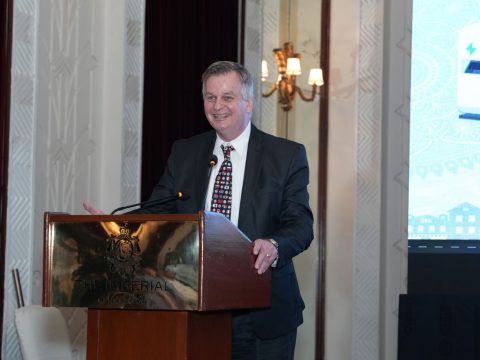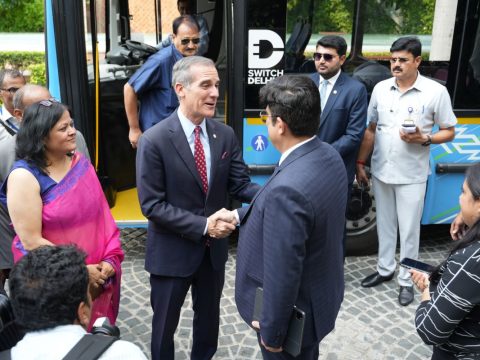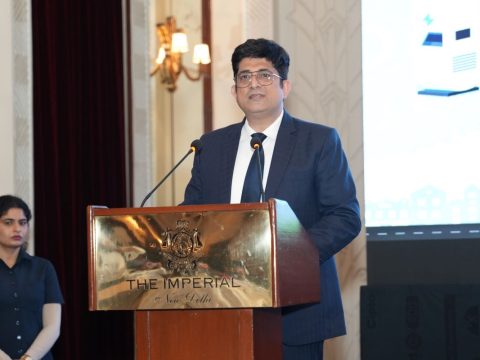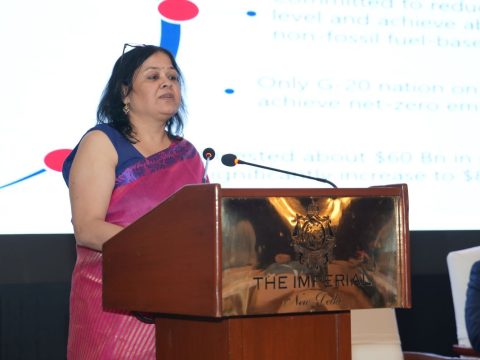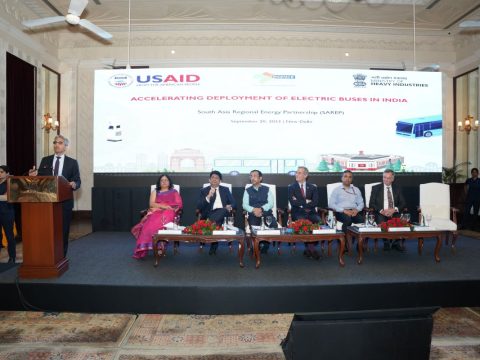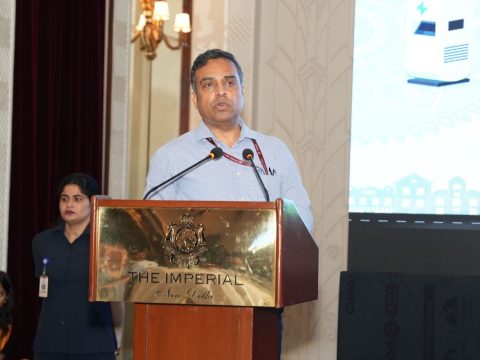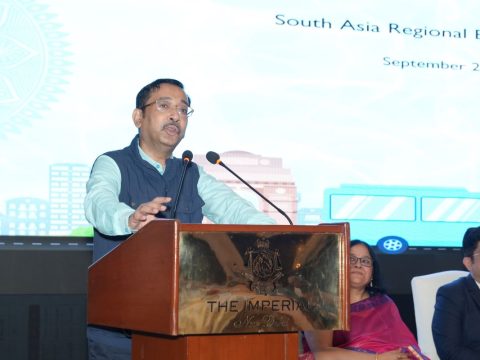Accelerating Deployment of Electric Buses in India: The United States and India Collaborate to Expand e-Mobility
In a significant step towards sustainable and eco-friendly transportation, the Government of India announced NEBP with a vision to deploy 50,000 electric buses in India by 2027. This is a $10 billion initiative to shift the public transport towards clean fuel. The recent event on ‘Accelerating Deployment of Electric Buses in India’, organized by USAID’s SAREP in collaboration with Ministry of Heavy Industries (MHI) and Convergence Energy Services Ltd. (CESL), on September 20, 2023 in New Delhi focused on the action items to electrify public transport. The event reinforced the partnership between USAID’s SAREP, MHI and CESL to decarbonize India’s mass transport by accelerating the deployment of electric buses.
The new initiative brings to reality the joint vision announced during Hon’ble Prime Minister of India, Shri. Narendra Modi’s official visit to the White House in June 2023 which was reiterated during the G20 leadership summit held earlier this month.
Eric Garcetti, U.S. Ambassador to India, graced the occasion and lauded the collaborative efforts between the United States and Indian Government to propel the adoption of electric buses in the country. The ambassador emphasized the potential for growth through collective efforts, citing India’s central role in e-bus production and consumption. He stressed on the importance of achieving peace, prosperity, and job creation while acknowledging the existential crisis our planet faces.
Kamran Rizvi, Secretary, Ministry of Heavy Industries (MHI) highlighted the efforts and numerous schemes introduced by the Indian government to address emissions. Mr. Rizvi also praised the USAID team and recognized the milestone achieved in the global journey towards a sustainable future.
Dr. Hanif Qureshi (IPS), Joint Secretary, Ministry of Heavy Industries (MHI), emphasized on fulfilling India’s commitments towards net zero by 2070, made during COP26 through three schemes by MHI such as FAME (Faster Adoption and Manufacturing of Hybrid and Electric Vehicles), aimed at allocating 3,500 crores for mass mobility buses, the production scheme for automobiles with incentives for manufacturers, and the production-linked scheme of advanced chemistry cells.
Speaking on the occasion Vishal Kapoor, CEO, Convergence Energy Services Ltd (CESL) highlighted the goal to reduce transit emissions, and how e-buses can play a significant role in slashing greenhouse gas emissions. He further reiterated on how joint events will further spark ideas in the battle against climate change.
Apurva Chaturvedi, Senior Clean Energy Specialist, Indo Pacific office, USAID/India stated the importance of decarbonization in the transport sector and the measures required to drive this change.
Vinay Chawla, Sr. Advisor, Office of Special Presidential Envoy for Climate (SPEC), U.S. Government spoke on the big investment opportunity that e-mobility presents and the pivotal role ‘PM-eBus Sewa’ scheme will play in building the e-charging infrastructure.
The second half of the event consisted of a panel discussion which deliberated on the expansion of possible use-cases of adoption of electric buses by institutions beyond State Transport Undertakings (STUs) and discussed international best practices, policies, case studies, and innovative business models for electrification of buses.
The session also explored the integration of electric buses beyond the conventional use within state-run transport systems and into sectors including government agencies, educational institutions, and private corporations. Such initiatives will go a long way in expanding the reach of electric buses, reducing emissions, and contributing to India’s ambitious EV adoption goals.


